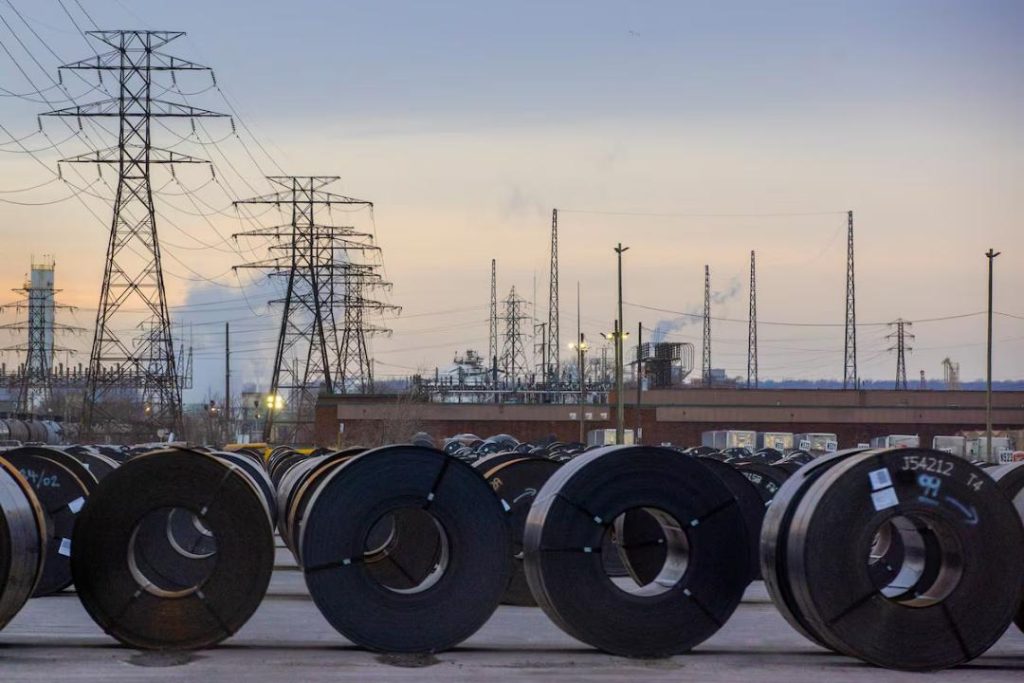
US Tariffs Hit Canada’s Steel & Aluminum Industry, Job Cuts Begin
The ongoing trade tensions between the United States and Canada have taken a devastating toll on Canada’s steel and aluminum industry, with at least 200 workers already affected by job cuts. The latest blow came from Canada Metal Processing Group, which announced that it would be cutting 140 jobs due to the “threat of incoming tariffs.”
The Canadian government has been vocal about its opposition to the US tariffs on steel and aluminum, which were imposed in June 2018. The tariffs, which range from 25% to 31% depending on the type of metal, have made it difficult for Canadian companies to export their products to the US market. In response, many Canadian companies have been forced to scale back their operations or even shut down, resulting in significant job losses.
The situation is particularly dire in the steel and aluminum sector, which has been a major driver of economic growth in Canada. The industry is a significant employer, with thousands of workers directly dependent on the sector for their livelihoods. However, with the US tariffs in place, many of these workers are now facing an uncertain future.
“The US tariffs have had a devastating impact on our industry,” said Marty Warren, National Director of the United Steelworkers. “We’ve seen a significant decline in demand for our products, and many companies are struggling to stay afloat. The latest job cuts at Canada Metal Processing Group are just the tip of the iceberg, and we expect to see even more cuts in the coming months.”
The tariffs are not just affecting Canadian companies, but also the communities that rely on the industry for employment and economic growth. Small towns and cities with large steel and aluminum operations are particularly vulnerable to the fallout, as the industry is often a major source of income for local residents.
The situation is expected to get worse in the coming months, with even more tariffs set to take effect on April 2. The Canadian government has been working to negotiate a new trade deal with the US, but so far, there has been little progress. In the meantime, economists are warning of even greater fallout ahead, as the tariffs continue to take a toll on the Canadian economy.
“The tariffs are having a ripple effect throughout the economy, and we’re starting to see the impact on other industries,” said Douglas Porter, Chief Economist at BMO Capital Markets. “The steel and aluminum industry is just the tip of the iceberg, and we expect to see even more job losses and economic contraction in the coming months.”
The Canadian government has been trying to mitigate the impact of the tariffs by providing financial support to affected companies and workers. However, many experts argue that a more comprehensive solution is needed to address the underlying issues driving the tariffs.
“The tariffs are a symptom of a larger problem, which is the lack of a comprehensive trade deal between the US and Canada,” said Craig Alexander, Senior Vice-President and Chief Economist at the Conference Board of Canada. “Until we get a new trade deal, the tariffs are going to continue to hurt our economy and our workers.”
In the meantime, the US tariffs on steel and aluminum are set to continue, and many experts expect to see even more job losses and economic contraction in the coming months. The situation is a stark reminder of the importance of international trade and the need for governments to work together to address the challenges facing the global economy.






